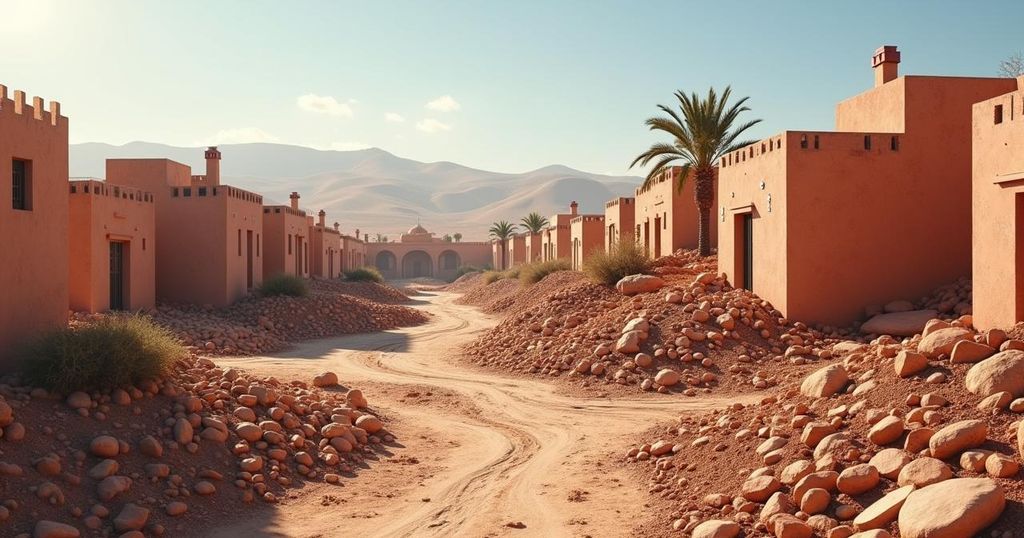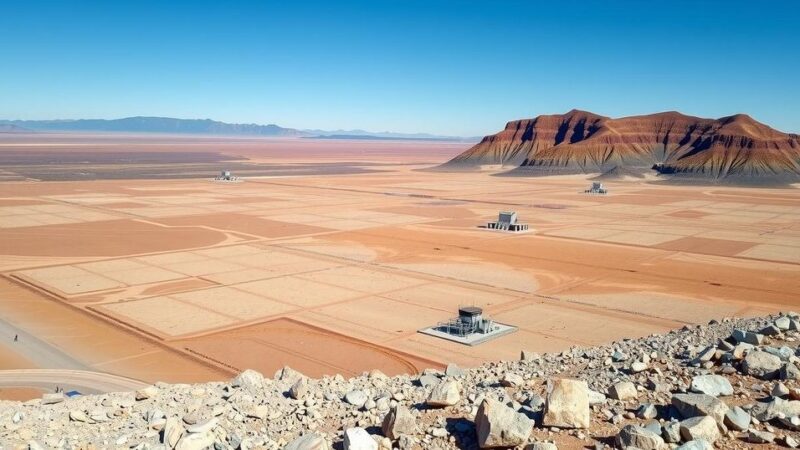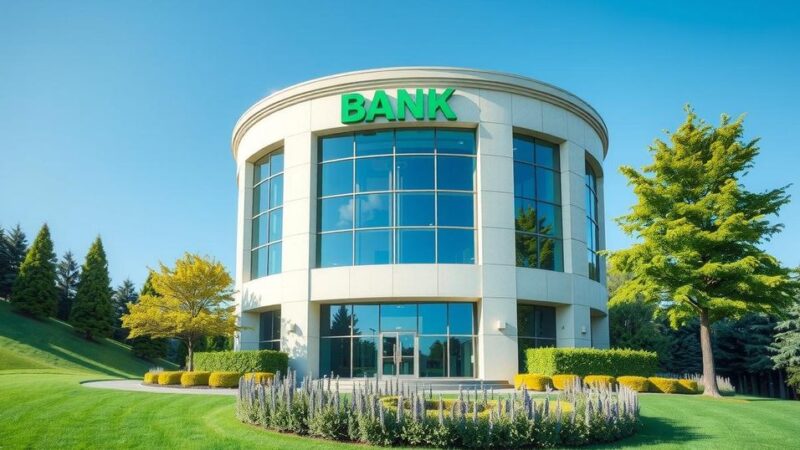The European Investment Bank has pledged €1 billion to Morocco over the next three years to support the reconstruction of infrastructure damaged by an earthquake. The initial €500 million loan aims to rehabilitate schools, hospitals, and roads, enhance seismic standards, and promote sustainable energy solutions. Morocco has established an agency for reconstruction oversight and plans to mobilize $12 billion for the affected regions, housing 4.2 million people.
The European Investment Bank (EIB) has committed to providing Morocco with a significant loan of €1 billion over the upcoming three years to facilitate the reconstruction of infrastructure that was severely impacted by the devastating earthquake that struck the Al Haouz region on September 8, 2023. The initial tranche of this loan, amounting to €500 million, was recently formalized in Rabat through an agreement between the EIB and the Moroccan Ministry of Economy and Finance, with key representatives from the Ministries of National Education, Infrastructure and Water, and Health in attendance. This financial assistance is integral to Morocco’s reconstruction strategy, which emphasizes the rehabilitation of essential services including schools, hospitals, and roads. Moreover, it aims to enhance seismic standards to bolster resilience against future disasters and to incorporate sustainable energy solutions, which align with the objectives of the EU-Morocco Green Partnership to address climate change and improve overall energy efficiency. In response to the earthquake, the Moroccan government has established an agency dedicated to managing reconstruction endeavors in the affected regions. This agency is responsible for overseeing initiatives designed to rehouse displaced individuals and to upgrade infrastructural systems in the six provinces that suffered the most: Marrakech, Al Haouz, Taroudant, Chichaoua, Ouarzazate, and Azilal. Additionally, Morocco has set a target to mobilize $12 billion to develop the devastated areas, which collectively house approximately 4.2 million residents, within a five-year timeframe. The EIB has reiterated its dedication to aiding Morocco in its transition to a greener economy, fostering inclusive socioeconomic growth, and enhancing resilience to impending challenges, particularly from natural disasters.
The recent earthquake in Morocco has necessitated a robust response to the detrimental effects on public infrastructure, primarily in the Al Haouz region. The European Investment Bank, a pivotal financial institution in supporting development and sustainability across Europe and neighboring regions, has stepped forward with a substantial financial package to assist the Moroccan government. The initiative not only aims to restore affected infrastructure but also emphasizes sustainable development practices, which are increasingly essential in the face of climate change and environmental challenges. Morocco’s commitment to rehabilitation efforts reflects a proactive and comprehensive strategy to enhance resilience within its communities, particularly in the sectors most impacted by natural disasters.
In summary, the European Investment Bank’s commitment of €1 billion to Morocco underscores a significant step towards rebuilding essential infrastructure in the wake of the devastating earthquake that struck the Al Haouz region. This initiative will support the country’s efforts to reconstruct schools, hospitals, and roadways while ensuring improved seismic standards and the integration of sustainable energy solutions. The establishment of a dedicated agency to oversee these reconstruction efforts illustrates Morocco’s comprehensive approach to recovery and resilience, positioning the nation to better withstand future challenges.
Original Source: northafricapost.com






